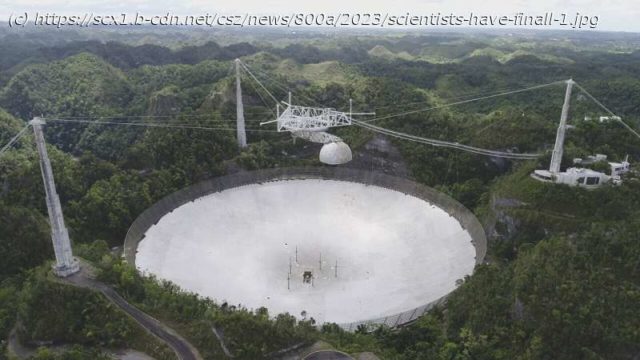Scientists have observed for the first time the faint ripples caused by the motion of black holes that are gently stretching and squeezing everything in the universe.
Scientists have observed for the first time the faint ripples caused by the motion of black holes that are gently stretching and squeezing everything in the universe.
They reported Wednesday that they were able to „hear“ what are called low-frequency gravitational waves—changes in the fabric of the universe that are created by huge objects moving around and colliding in space.
„It’s really the first time that we have evidence of just this large-scale motion of everything in the universe,“ said Maura McLaughlin, co-director of NANOGrav, the research collaboration that published the results in The Astrophysical Journal Letters.
Einstein predicted that when really heavy objects move through spacetime—the fabric of our universe—they create ripples that spread through that fabric. Scientists sometimes liken these ripples to the background music of the universe.
In 2015, scientists used an experiment called LIGO to detect gravitational waves for the first time and showed Einstein was right. But so far, those methods have only been able to catch waves at high frequencies, explained NANOGrav member Chiara Mingarelli, an astrophysicist at Yale University.
Those quick „chirps“ come from specific moments when relatively small black holes and dead stars crash into each other, Mingarelli said.
In the latest research, scientists were searching for waves at much lower frequencies. These slow ripples can take years or even decades to cycle up and down, and probably come from some of the biggest objects in our universe: supermassive black holes billions of times the mass of our sun.
Galaxies across the universe are constantly colliding and merging together. As this happens, scientists believe the enormous black holes at the centers of these galaxies also come together and get locked into a dance before they finally collapse into each other, explained Szabolcs Marka, an astrophysicist at Columbia University who was not involved with the research.






